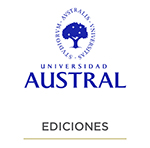Artificial Intelligence in the Criminal Process
Better the Human You Know than an Algorithm Unknown?
Abstract
Implementing disruptive technologies in the criminal process still offers a picture where concerns prevail over statements. Despite the topic has been, and continues to be, studied by authors, analyses have shown to be way too enthusiastic or fatalistic in the face of these novelties. The problem is that their regular application in the judicial system will soon arrive, and we still have not reached a coherent balance to address this complex challenge.
I do not intend to cover all the uses–and consequent controversies–that these systems, such as artificial intelligence, spark in the judicial process. This broad object would exceed the purpose of the essay and would prevent the exhaustive analysis of the specific problem that will be raised here. Instead, I propose to analyze the possibility of introducing artificial intelligence tools to assess procedural risks in a criminal investigation. I will show the advantages and limitations these intelligent systems have–as well as their scope–to achieve a potential solution, which observes due process in criminal law.
Downloads
References
Castellano, P. S. (2021). Justicia cautelar e inteligencia artificial. La alternativa a los atávicos heurísticos judiciales. Bosch Editor.
Compton, J. (27 de marzo de 2019). Data Quality: The Risks of Dirty Data And AI. Forbes. https://www.forbes.com/sites/intelai/2019/03/27/the-risks-of-dirty-data-and-ai/?sh=67eb08fb2dc7.
Danesi, C. (2020). Inteligencia artificial, tecnologías emergentes y derecho. Hammurabi.
Dupuy, D. y Corvalán, J. G. (Dirs.). (2021). Cibercrimen III. Inteligencia Artificial. Automatización, algoritmos y predicciones en el Derecho penal y procesal penal. Euros Editores S.R.L.
Grupo GIFT. (2017). Inteligencia artificial, filosofía y derecho. La Ley, Suplemento de Innovación y Derecho, (1), 7-8.
Miró, F. (s.f.). Cuestionario - Sección II Delitos en el Código Penal. https://www.penal.org/sites/default/files/Questionnaires%20ES_1.pdf
Miró Llinares, F. (2018). Inteligencia artificial y justicia penal: más allá de los resultados lesivos causados por robots. Revista de Derecho Penal y Criminología, (20), 87-130.
Murphy, E. (2007). The new forensics: criminal justice, false certainty and the second generation of scientific evidence. California Review, 95, 721-797.
Navarro, J. B. (2020). Algunas reflexiones sobre la viabilidad de la inteligencia artificial en el proceso penal. Revista Inmexius. Revista de Derecho Penal y Procesal Penal del Instituto Mexicano de Estudios y Consultorías en Derecho, (40), 16-24.
Nieva Fenoll, J. (2016). La razón de ser de la presunción de inocencia. InDret: revista para el análisis del derecho, (1), 1-23. https://indret.com/wp-content/themes/indret/pdf/1203_es.pdf.
Pastor, D. (2002). El encarcelamiento preventivo en Tensiones ¿Derechos fundamentales o persecución penal sin límites? Editores del Puerto.
Pastor, D. (2017). El futuro de la jurisdicción penal entre oficios temporales y máquinas de juzgar. Diario Penal, (175), Episodio 6, 1-19.
Pastor, D. (2019). Neurociencias, tecnologías disruptivas y tribunales digitales. Hammurabi.
Polansky, J. A. (2020). Garantías constitucionales del procedimiento penal en el entorno digital. Hammurabi.
Quiñones Urquiza, L. (23 de octubre de 2017). Efecto CSI: el impacto de las series de ficción a la hora de analizar un caso criminal real. La Nación https://www.lanacion.com.ar/seguridad/efecto-csi-el-impacto-de-las-series-de-ficcion-a-la-hora-de-analizar-un-caso-criminal-real-nid2074690/.
Riquert, M. A. (2022). Inteligencia artificial y derecho penal. Ediar.
Romeo Casabona, C. M. (2021). Inteligencia artificial, predictividad y justicia penal. En Dupuy, D. y Corvalán, J. G. (Dirs.), Cibercrimen III. Inteligencia Artificial. Automatización, algoritmos y predicciones en el Derecho penal y procesal penal (pp. 183-208). Euros Editores.
Simón Castellano, P. (2021). Justicia cautelar e inteligencia artificial. La alternativa a los atávicos heurísticos judiciales. J. M. Bosch Editor.
Vilanova Sánchez, M. (2021). La presunción de inocencia ante las herramientas estructuradas de valoración de riesgo. La Ley, Suplemento de Innovación y Derecho, (2), 2-5.
Copyright (c) 2022 Catalina Serventich

This work is licensed under a Creative Commons Attribution-NonCommercial-NoDerivatives 4.0 International License.
This license allows the copy, distribution, exhibition and representation of the work provided authorship is acknowledged and the work is properly quoted. Commercial use of the original work or the generation of derived works are not allowed.
The authors hereby guarantee the right to the first publication of the work to the Revista Jurídica Austral.
















































